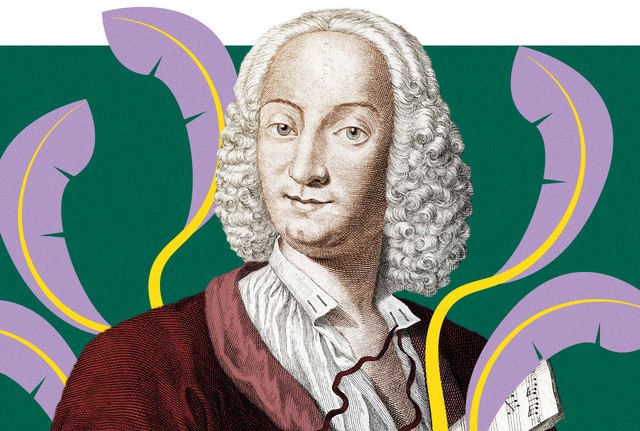The composer of the Four Seasons Concerto, which even those who are not interested in classical music know: Who is Antonio Vivaldi?
A great genius who was buried in the cemetery of the orphans when he died because he had no money... Here is his story:

He produced 45 operas, 75 sonatas, 23 symphonies, 454 concertos, 554 instruments and 40 sacred musical works, which are almost like lace. With his immortal work "Four Seasons" concertos, summer and winter, spring and autumn have been called by his name in all geographies of the world.
Antonio Lucio Vivaldi (4 March 1678, Venice - 28 July 1741, Vienna) was an Italian baroque classical composer, virtuoso violinist and priest. Known as the "Red Priest", Vivaldi composed more than five hundred works in the concerto genre and is also known as the 'father of the concerto'.
He is one of the most creative names among the composers who brought the Italian Baroque style to the top. His works reflect the excellence of 17th century Italian opera and concerto formats. Moreover, this concerto is one of the most radical works in the history of music and is almost a cultural turning point. It certainly did not cause a revolt, but when it was first published in 1725, it almost shocked the audience.
With this concerto, Vivaldi showed how a composer can describe human interactions or moods in an orchestral piece without resorting to words.
In fact, in a way, Vivaldi sought to prove that descriptive music can be sophisticated, complex, and virtuoso enough to be taken seriously. There are descriptions of barking dogs, drunken dancers, and buzzing insects in the details of the story that makes up the concerto.
Offering elegance and originality in each section, Vivaldi depicts a man floating on ice using descending octaves on the second violin and violas in the 'Winter' section of the concerto. While listening to this part, you feel the 'hearth heat' and the icy rain outside on the violins.
Vivaldi probably believed he was the best violinist on the planet, and that's why he wrote dozens of violin concertos. But he was always on a quest to discover more. Based on certain landscapes and scenes, he was obsessed with descriptions that would convey the seasons cycle of the world and the characteristics of human behavior in music.
Detailed story: Who is Vivaldi?
Vivaldi was born on March 4, 1678 in Venice. His nickname was the Red Priest. His father had previously been a barber and later became a successful violinist. Antonio Vivaldi received his first musical education from his father. His mother was the daughter of a tailor.
Antonio Vivaldi received religious education between 1693 and 1703. Meanwhile, in 1696 St. Mark worked as a violinist in his church. In 1703 he started his first official job at Pio Ospedale della Pieta, one of four orphanages in Venice, where girls were taught music. While working in the girls' orphanage, he gave concerts in many parts of Europe with this school. He left this post in 1709.
Antonio Vivaldi's Op.1 sonata set was published in 1705. In 1709, the Op.2 violin sonata was performed by King of Denmark IV. Dedicated to Frederik.
He wrote three operas for the carnival season in Rome between 1723 and 1724. His work written in 1725, Op. 8, his fame spread further with Il cimento dell'armonico e dell'inventione. During these years, his relationship with the opera singer Anna Giraud began.
After 1725, he started to give concerts and write concertos alone and became famous throughout Europe. Almost all of Antonio Vivaldi's creations are in the form of a violin concerto. It coincides with the period when the first concertos in the history of music were written, and even the concerto is considered to be the creator of the works. That's why he is called the Father of the Concerto.
However, Vivaldi did not write only violin and orchestral works, as everyone thinks. In addition to the violin, he wrote many concertos and concerto grosso for flute, oboe, bassoon, as well as many stage cantatas and 38 known opera works.
The disagreement between Vivaldi and the directors of Ferrara, when he was in office in 1737, over the selection of operas to be performed, led to Vivaldi's dismissal from his job. After this event, Vivaldi settled in Amsterdam. He died in a widow's house in Vienna on July 28, 1741, during his journey to Austria to listen to Anna in Graz. He was buried in the cemetery of the orphans on the same day.
He has been dealing with chronic asthma bronchitis all his life.
Vivaldi has more than 500 concertos. While wind instruments are dominant in French Baroque music, string instruments gain importance in his music. In addition to 230 violin concertos, there are concertos for flute, oboe, cello, viola and mandolin.
The Four Seasons Concerto, which is known even to those who are not interested in classical music, is his most popular work.
